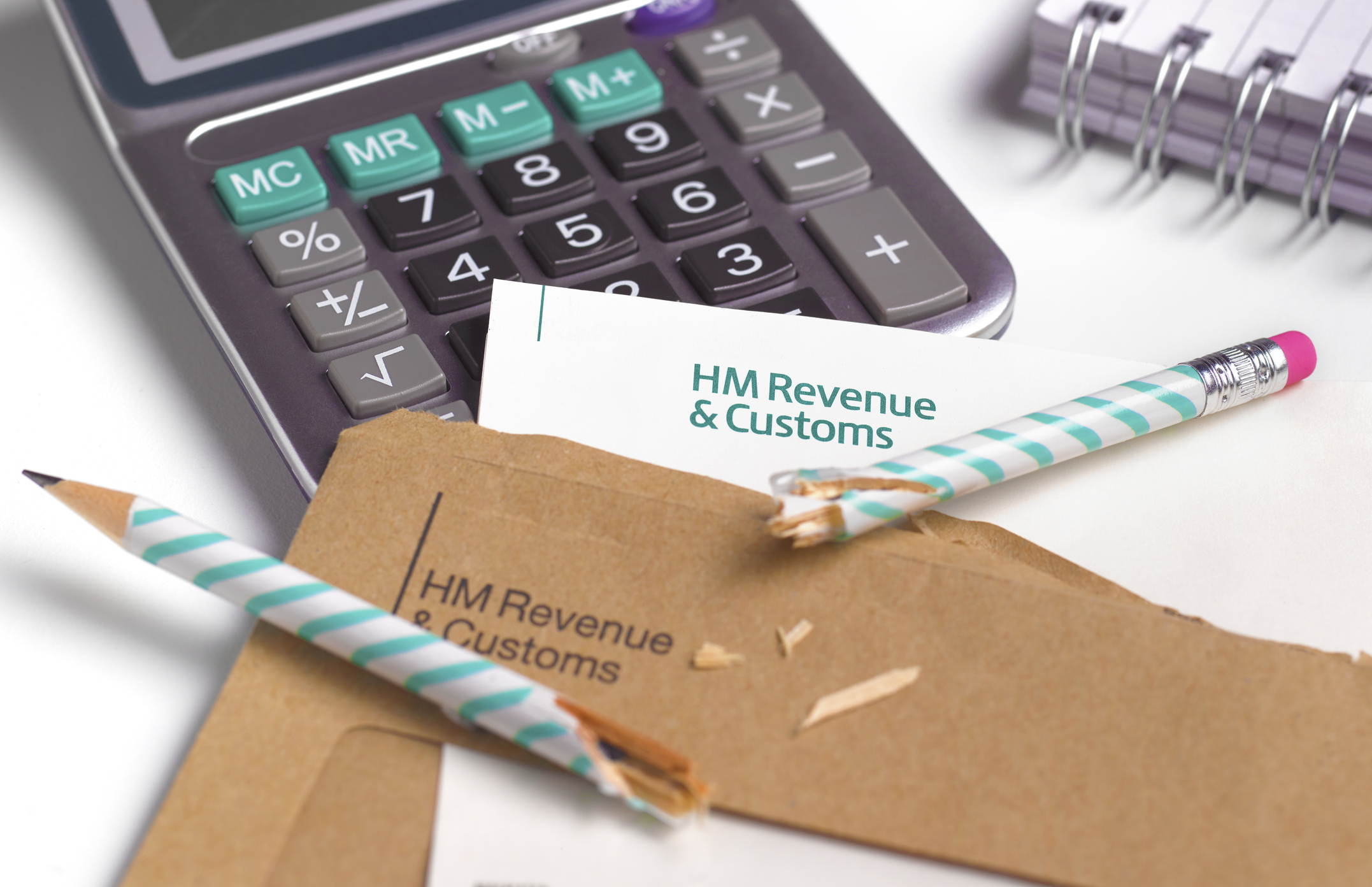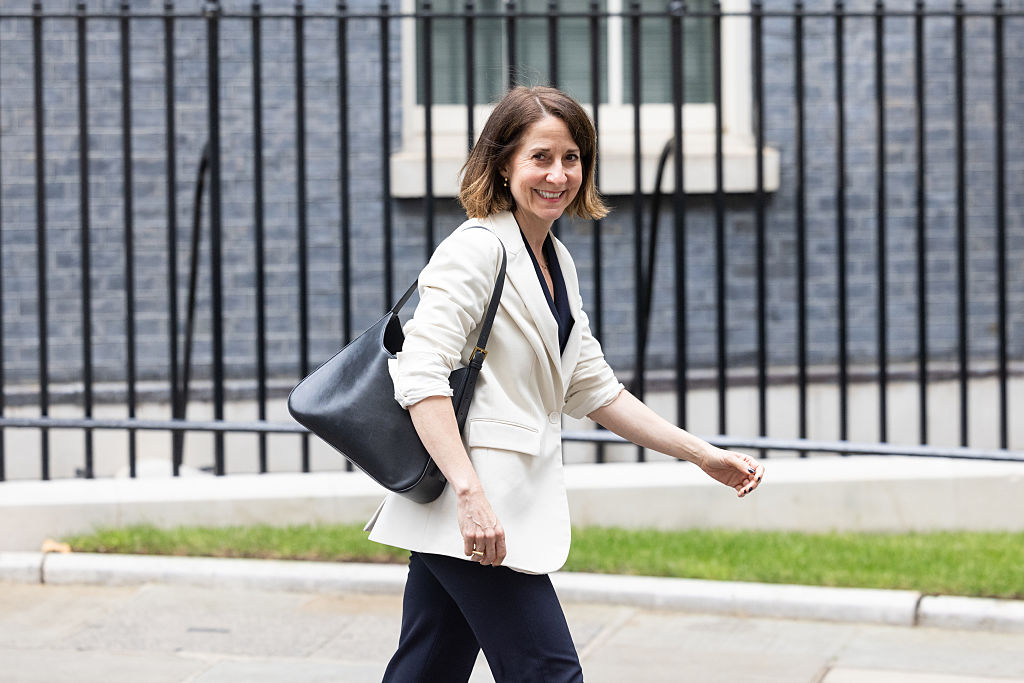State pension errors: HMRC contacts thousands of women over missing payments
HMRC has sent out 325,000 letters so for state pension errors. The average underpayment is £5,400 - could you be affected?


Get the latest financial news, insights and expert analysis from our award-winning MoneyWeek team, to help you understand what really matters when it comes to your finances.
You are now subscribed
Your newsletter sign-up was successful
Want to add more newsletters?

Twice daily
MoneyWeek
Get the latest financial news, insights and expert analysis from our award-winning MoneyWeek team, to help you understand what really matters when it comes to your finances.

Four times a week
Look After My Bills
Sign up to our free money-saving newsletter, filled with the latest news and expert advice to help you find the best tips and deals for managing your bills. Start saving today!
Thousands of parents (mostly women) who claimed child benefit before 2000 are receiving letters from HMRC explaining that they could be missing state pension payments due to government errors.
The underpayments are worth £5,400 on average.
HMRC told MoneyWeek that it had so far issued 325,000 letters to people both over state pension age and under state pension age. It expects to finish sending letters by the end of this month (September).
MoneyWeek
Subscribe to MoneyWeek today and get your first six magazine issues absolutely FREE

Sign up to Money Morning
Don't miss the latest investment and personal finances news, market analysis, plus money-saving tips with our free twice-daily newsletter
Don't miss the latest investment and personal finances news, market analysis, plus money-saving tips with our free twice-daily newsletter
The majority of the people affected are women, and the age range varies. Anyone who made a claim for child benefit before May 2000 and is unsure if their National Insurance number was included on the form could be affected.
The government is also encouraging people to come forward to see if they are missing payments.
James Murray, exchequer secretary to the Treasury, said: “The state pension is the foundation of state support for people in retirement. We are urging people to check their National Insurance records to make sure they will receive the pension they deserve.”
State pension underpayments: who will get a letter?
HMRC is coming to the end of a huge mailout of letters sent to those who are most likely to have been affected by an error in their state pension, largely mothers who claimed child benefit before 2000 and have a gap in their National Insurance (NI) record.
Home Responsibilities Protection (HRP) was applied to the NI records of those who claimed child benefit between 1978 and 2000, to protect their state pension. It reduced the number of qualifying years a person with caring responsibilities needed to receive the full basic state pension. It was replaced by National Insurance credits in 2010.
However, if someone claimed child benefit before May 2000 and didn't provide their NI number on their claim, HRP may not have been applied and their state pension entitlement could have been affected.
HMRC says that if people are missing HRP from their NI record, it doesn’t automatically mean their state pension calculation is incorrect, but it does increase the possibility, particularly if they spent a number of years away from work to raise a family.
The Department for Work and Pensions (DWP) estimates that 194,000 people's records will need to be reviewed as part of their exercise into state pension underpayments affected by HRP errors. As at the end of March, only 419 state pension records had been checked, and £2.2 million had been paid out for arrears.
Can I claim if I didn't get a letter?
Customers do not need to wait for the letter before they make a claim.
They can check their eligibility and make a claim on gov.uk - it should only take about 15 minutes to complete. They can also claim by post using form CF411.
Emma Reynolds, minister for pensions, said: “The government’s priority is to ensure pensioners have security and dignity in retirement. I strongly encourage anyone who thinks they are missing out to check their eligibility and apply for Home Responsibilities Protection – taking just a few minutes out of your day now could mean a boost to your retirement.”
People can check their National Insurance record online or via the free HMRC app.
Who is affected by state pension underpayments?
As well as the errors with HRP, the DWP is also investigating other state pension underpayments. These relate to some married individuals, widows/widowers and people who have reached age 80 where their current payment does not include an additional entitlement.
An estimated 860,271 state pension records need to be reviewed by the government. So far, 731,717 have been checked, with £594 million paid out in arrears.
The mistakes relating to the HRP were recognised in a DWP annual report in July 2022 and described as the “second largest source of error in state pensions”.
Note that if you first claimed child benefit after May 2000, you will not be affected and do not need to contact HMRC because parents were required to include their NI number on their child benefit claim forms.
State pension errors: the “married woman’s rate” of basic state pension
Widows and divorcees could have been underpaid the "married woman’s rate" of basic state pension for years. This separate problem dates back to 1985 and relates to the "old" state pension system.
Married women aged 80 or over are being urged to check if they are receiving their full state pension after a document revealed hundreds of thousands of them are missing out under the underpayment correction scheme. It is thought that just over 130,000 people are affected, at a total of just over £1bn.
In this instance, the DWP has no plan to contact these women, making them responsible for claiming.
If you have the full 30 qualifying years of National Insurance contributions, you’re entitled to the full basic state pension, currently £169.50 per week.
And if you’re married or in a civil partnership, and you both have the full 30 qualifying years, you’ll get double the amount.
However, if you’re a married woman and don’t have the full number of qualifying years, and your spouse retired before April 2016, you could be entitled to the so-called “married woman’s rate” of state pension.
This rate is set at 60% of the basic state pension your spouse gets. So, if your basic state pension payment is less than 60% of your spouse’s, you could be entitled to more.
In other words, married women could be entitled to a higher state pension (up to £85) based on current rates, but only if they claim it from the DWP.
Who’s missing out on the state pension correction scheme?
Before 2008, married women were legally required to claim the top-up, but following a rule change in March 2008, married women in this position should have automatically received an uplift in their state pension to 60% of their husbands' payout.
However, the DWP has excluded the “pre-March 2008” women from the automatic uplift as they were previously responsible for claiming it themselves.
It added it “took a number of steps to inform these individuals about their eligibility,” sent out forms about four months before a customer reached state pension age and men were given an extra claim so their wives could request the top-up.
It was unclear how many women were missing out, but a document discovered by former pensions minister Steve Webb showed that “in the low hundreds of thousands” of women could be in this position.
How can I claim?
If you receive a letter from the government about being underpaid the state pension, it will explain how to claim.
To check if you've been underpaid, you can use this tool on the consultant LCP's website. You can also contact the Pension Service for information about the state pension by calling 0800 731 0469.
Some people who were paid the wrong state pension may have died. In that case, families and executors will be entitled to check the deceased person's eligibility on the government website and make a claim for any arrears.
Get the latest financial news, insights and expert analysis from our award-winning MoneyWeek team, to help you understand what really matters when it comes to your finances.

Ruth is an award-winning financial journalist with more than 15 years' experience of working on national newspapers, websites and specialist magazines.
She is passionate about helping people feel more confident about their finances. She was previously editor of Times Money Mentor, and prior to that was deputy Money editor at The Sunday Times.
A multi-award winning journalist, Ruth started her career on a pensions magazine at the FT Group, and has also worked at Money Observer and Money Advice Service.
Outside of work, she is a mum to two young children, while also serving as a magistrate and an NHS volunteer.
-
 How should a good Catholic invest? Like the Vatican’s new stock index, it seems
How should a good Catholic invest? Like the Vatican’s new stock index, it seemsThe Vatican Bank has launched its first-ever stock index, championing companies that align with “Catholic principles”. But how well would it perform?
-
 The most single-friendly areas to buy a property
The most single-friendly areas to buy a propertyThere can be a single premium when it comes to getting on the property ladder but Zoopla has identified parts of the UK that remain affordable if you aren’t coupled-up
-
 Simple assessment explained as millions brace for unexpected tax bills
Simple assessment explained as millions brace for unexpected tax billsIncreasing numbers of people could get letters from HMRC saying they owe more tax due to frozen thresholds, under a system known as simple assessment. Here is what it means for you.
-
 Should state pension age rise to 70? Have your say in government review
Should state pension age rise to 70? Have your say in government reviewThe state pension age review will consider the “merits” of automatic increases tied to life expectancy. If you want to give your view, you’ll need to be quick, as the deadline is looming
-
 The 1% pension rule: can it help close the pensions gap?
The 1% pension rule: can it help close the pensions gap?Advice Contributing an extra 1% into a pension could fill the gaps from a career break
-
 Act now to bag NatWest-owned Ulster Bank's 5.2% easy access savings account
Act now to bag NatWest-owned Ulster Bank's 5.2% easy access savings accountUlster Bank is offering savers the chance to earn 5.2% on their cash savings, but you need to act fast as easy access rates are falling. We have all the details
-
 Moneybox raises market-leading cash ISA to 5%
Moneybox raises market-leading cash ISA to 5%Savings and investing app MoneyBox has boosted the rate on its cash ISA again, hiking it from 4.75% to 5% making it one of top rates. We have all the details.
-
 October NS&I Premium Bonds winners - check now to see what you won
October NS&I Premium Bonds winners - check now to see what you wonNS&I Premium Bonds holders can check now to see if they have won a prize this month. We explain how to check your premium bonds
-
 The best packaged bank accounts
The best packaged bank accountsAdvice Packaged bank accounts can offer great value with useful additional perks – but get it wrong and you could be out of pocket
-
 Bank of Baroda closes doors to UK retail banking
Bank of Baroda closes doors to UK retail bankingAfter almost 70 years of operating in the UK, one of India’s largest bank is shutting up shop in the UK retail banking market. We explain everything you need to know if you have savings or a current account with Bank of Baroda